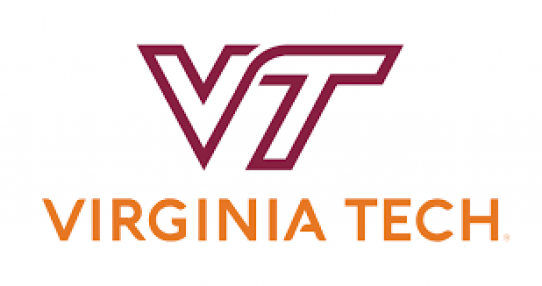Virginia Tech leaders explore issues of trust in science during high profile Research!America panel discussion

Read the full article by Virginia Tech.
Michael Friedlander and Heywood Fralin received awards of distinction from Research!America, a research advocacy organization based in Arlington.
Creating ways to prevent or fight disease — such as developing a vaccine during a pandemic — takes scientific know-how, experimentation, and the ability to adapt to new information.
But a road map is not included. Expect detours that can shake people’s confidence, according to research, academic, and industry leaders in a discussion this week organized by Research!America at the National Academy of Sciences building in Washington, D.C.
“It is helpful for people to understand the scientific community — we develop hypotheses and then attempt to falsify them to move on to new, improved ideas,” said panelist Michael Friedlander, the executive director of the Fralin Biomedical Research Institute at VTC and Virginia Tech vice president for health sciences and technology. “The process involves changing course as we experiment and receive new information. But along the way, bits of information can get picked up and amplified by the media before there is scientific consensus and validation. Watching the process of sausage making can get messy. As the public sees every step of the process, it may seem confusing as the interpretations and conclusions evolve.”
The panel, moderated by Donna Shalala, formerly a U.S. secretary of health and human services and member of the U.S. House of Representatives, probed issues touching on scientific credibility and trusted sources of information.
Noubar Afeyan, founder and CEO of Flagship Pioneering and a co-founder and board chairman of Moderna, said trust in science was put to an extreme test during the COVID-19 pandemic because the problems were so urgent and the development of the vaccine was so critical.
“When you are dealing with innovation, it’s a different type of trust — you have to admit a lot of uncertainty,” Afeyan said.
A gap arises because scientists are trained and expect more uncertainty than the people who observe the process.
“What matters is communication, transparency, consistency, track record, the number of people who are collaborating to bring about the outcome — those are all things that enhance a level of trust,” he said. “But it is harder to expect trust during that period of time when you really need to continue to gather more information.”
Friedlander said opening the doors of the research institute in Roanoke in 2010 created opportunities for community members to interact with scientists and students. Events such as the annual Brain School and Distinguished Public Lectures by world-renowned researchers are bridging the gap, making science accessible and exciting.
“In our community in Southwest Virginia, there already existed a public R1 research-intensive university in Virginia Tech and a private not-for-profit community health system in Carilion Clinic, where each already had earned the trust of the public,” Friedlander said. “The research institute was something new. We reached out to the community from the very beginning. I think about people who work for hourly wages and pay taxes — we are working for them and we have to earn their trust.”
An early convert was Heywood Fralin, a Roanoke-area health care executive who believes biomedical research and biotech are essential for Virginia’s progress.
His gift to support the institute resulted in the renaming of the institute in 2018. Fralin, who was also on the panel discussing public trust, said a number of his associates are interested in supporting the research institute because they trust the science and believe that investment in quality biomedical research will create significant economic development in the region and advance health care in the nation and the world.
We live in a society that is quite interested in health care, and the growth of research is not only a reflection of that societal support but also a result of the many breakthroughs in biomedical research over the last several years,” Fralin said. “In my opinion, this is only the beginning of the impact. If we could fast forward 25 years, none of us could imagine the scientific breakthroughs that will have occurred or the impact it will have on the nation and the world. I believe the vast majority of people want to make the world a better place and there is no better way to do that than through scientific research.”
Friedlander and Fralin each accepted the Research!America Gordon and Llura Gund Leadership Award, which recognizes individuals who have increased the level of advocacy for medical and health research. President Joe Biden and former New York City Mayor Michael Bloomberg are among the past honorees.
In addition, Sens. Charles Schumer, D-N.Y., and Todd Young, R-IN, received the Edwin C. Whitehead Award for Medical Research Advocacy for their extraordinary contributions to strengthening our nation’s research capabilities and impact.
“Everyone who joined us for the 2023 Advocacy Awards was dazzled by our honorees, who participated in deftly moderated panel conversations about urgent priorities — overcoming resistance to trusting science and improving science communication,” said Mary Woolley, president and CEO of Research!America.




